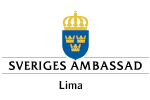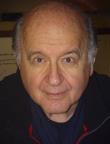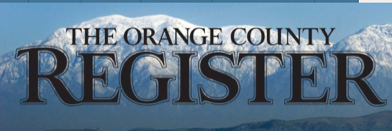 But why not listen, instead, to what Hernando de Soto, the Peruvian economist author of The Mystery of Capital: Why Capitalism Triumphs in the West and Fails Everywhere Else, has to say. In this article in the Independent last year, de Soto questioned Piketty’s fundamental anti-capitalism premise.
But why not listen, instead, to what Hernando de Soto, the Peruvian economist author of The Mystery of Capital: Why Capitalism Triumphs in the West and Fails Everywhere Else, has to say. In this article in the Independent last year, de Soto questioned Piketty’s fundamental anti-capitalism premise.



 The two super economists Thomas Piketty and Hernando de Soto both agree that the capitalist system is flawed. But where Piketty thinks there is too much capitalism, de Soto thinks there is too little, which is the fundamental reason why millions of migrants right now are banging on the doors of Europe, writes Nils Elmark.
The two super economists Thomas Piketty and Hernando de Soto both agree that the capitalist system is flawed. But where Piketty thinks there is too much capitalism, de Soto thinks there is too little, which is the fundamental reason why millions of migrants right now are banging on the doors of Europe, writes Nils Elmark. After all, the Arab Spring began when a poor Tunisian entrepreneur, Mohamed Bouazizi, set himself on fire in December 2010 to protest the merciless expropriation of his business. He committed suicide – as his brother Salem told me in an interview recorded for American public television – for “the right of the poor to buy and sell.”
After all, the Arab Spring began when a poor Tunisian entrepreneur, Mohamed Bouazizi, set himself on fire in December 2010 to protest the merciless expropriation of his business. He committed suicide – as his brother Salem told me in an interview recorded for American public television – for “the right of the poor to buy and sell.”
 End ‘anoikis’ in Middle East to win the war on terror 6 Wednesday, December 30, 2015Hernando de SotoHernando de Soto wonders how long it will take the West to remember that democratic capitalism requires strong property rights to set clear boundaries beyond which the state may not go? Without them, the situation in the Middle East will remain volatile for years to come
End ‘anoikis’ in Middle East to win the war on terror 6 Wednesday, December 30, 2015Hernando de SotoHernando de Soto wonders how long it will take the West to remember that democratic capitalism requires strong property rights to set clear boundaries beyond which the state may not go? Without them, the situation in the Middle East will remain volatile for years to come People's homes are most often their biggest asset -- something that can be borrowed against to start a business or secure a safe retirement. In the developing world, property titles take on even more meaning. Peruvian economist Hernando de Soto, for example, has identified trillions of dollars of "dead capital" in the developing world: people living in the world's poorest slums own their homes, but without formal titles they can't easily sell, appraise, insure or borrow against those assets.
People's homes are most often their biggest asset -- something that can be borrowed against to start a business or secure a safe retirement. In the developing world, property titles take on even more meaning. Peruvian economist Hernando de Soto, for example, has identified trillions of dollars of "dead capital" in the developing world: people living in the world's poorest slums own their homes, but without formal titles they can't easily sell, appraise, insure or borrow against those assets. Hernando de Soto and his 1989 book, “The Other Path: The Invisible Revolution in the Third World.” It has sparked numerous free-market reforms in his native country and throughout Latin America.
Hernando de Soto and his 1989 book, “The Other Path: The Invisible Revolution in the Third World.” It has sparked numerous free-market reforms in his native country and throughout Latin America. FIGAROVOX/TRIBUNE- La paix dans les pays arabes passe par le développement de la libre entreprise et d'une sécurité juridique, plaide l'économiste péruvien Hernando de Soto.
FIGAROVOX/TRIBUNE- La paix dans les pays arabes passe par le développement de la libre entreprise et d'une sécurité juridique, plaide l'économiste péruvien Hernando de Soto. It has been 14 years since US president George W. Bush declared a “global war on terror”. Today, after spending $1.6 trillion on that war and killing 101 terrorist chieftains, from Osama bin Laden to “Jihadi John”, the West remains just as vulnerable, if not more so, to extremists who can recruit fighters and strike any Western capital virtually at will. Now that another president—François Hollande of France—has also declared war on terror (as have other European leaders), are the prospects for victory really any better? I have my doubts.
It has been 14 years since US president George W. Bush declared a “global war on terror”. Today, after spending $1.6 trillion on that war and killing 101 terrorist chieftains, from Osama bin Laden to “Jihadi John”, the West remains just as vulnerable, if not more so, to extremists who can recruit fighters and strike any Western capital virtually at will. Now that another president—François Hollande of France—has also declared war on terror (as have other European leaders), are the prospects for victory really any better? I have my doubts.